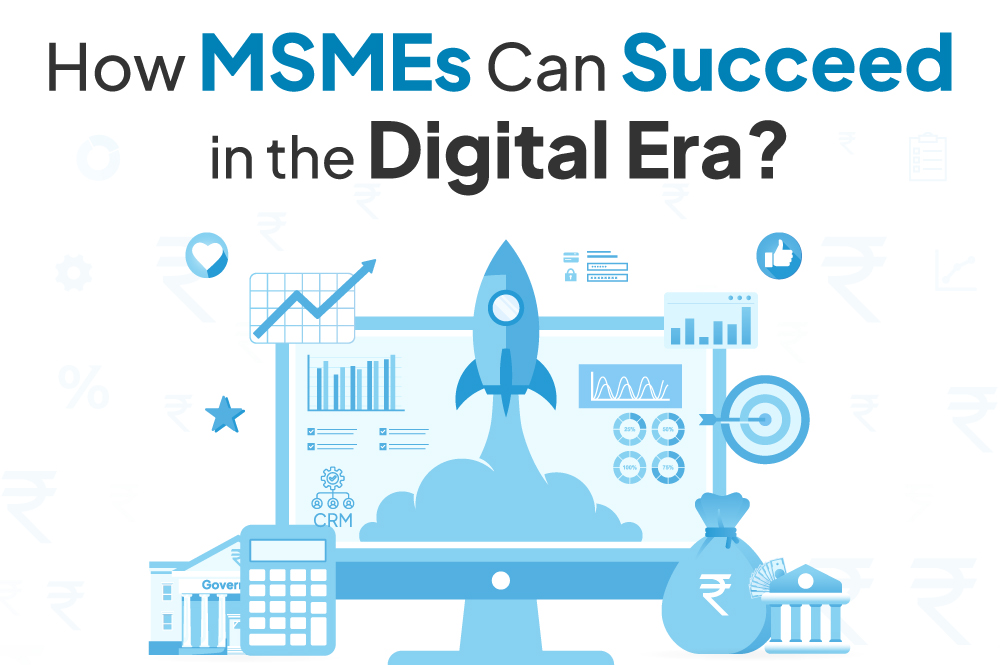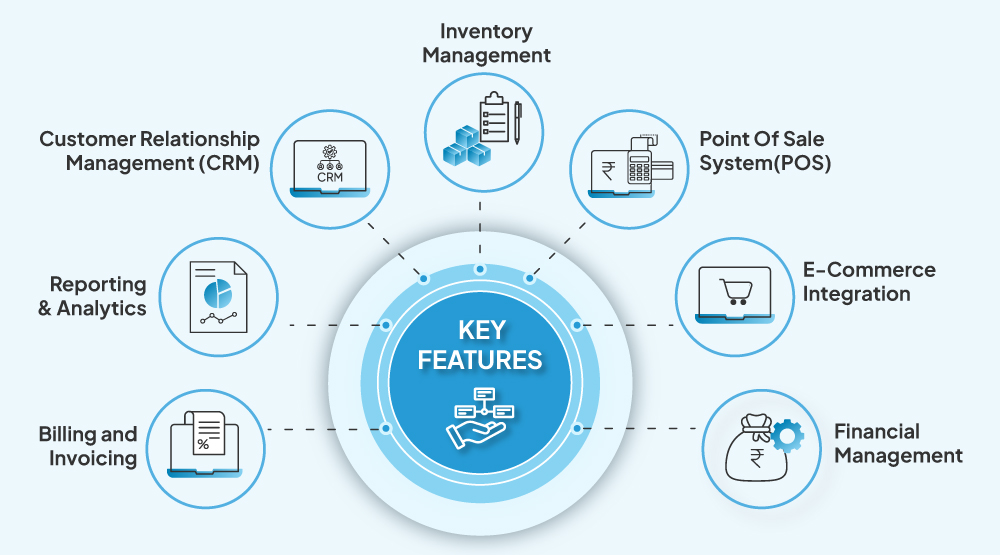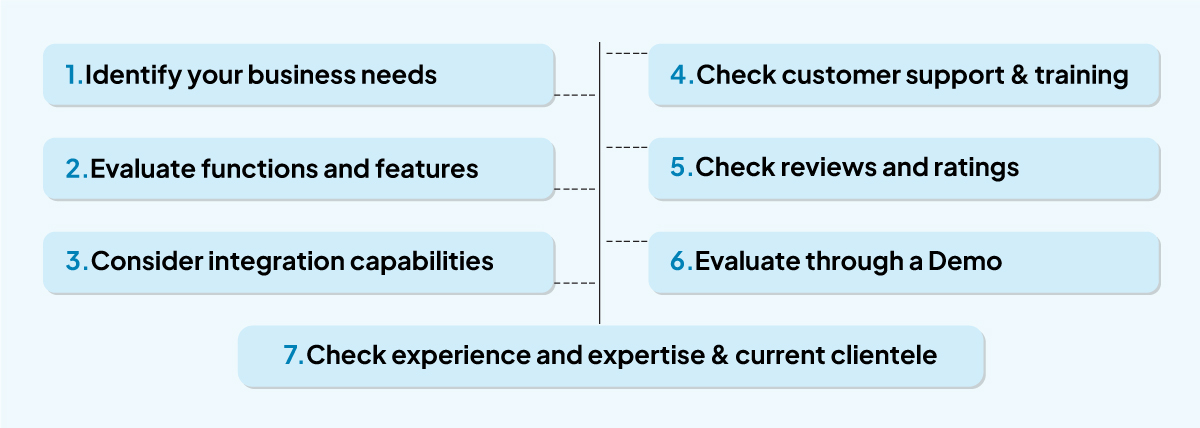Tech-Driven Success: How MSMEs Can Succeed in the Digital Era?
July 2, 2024

MSMEs are a huge contributor to growth in the Indian economy. After agriculture, the MSME is the second largest employer in India. A contributor to over one-third of the Indian GDP. MSMEs have successfully transitioned from traditional to online businesses, reaching global and national audiences through omnichannel e-commerce platforms. Today, Indian MSME businesses are defying expectations by making significant developments and space in sectors traditionally dominated by established International brands.
But, how is this being made possible? Today MSMEs are more open to adopting new technologies and software applications to take their businesses to newer heights.
However, even amidst these positive developments, there is still a large number of MSMEs that face challenges like operational scalability, supply chain inefficiencies, high competition, regulatory scrutiny, and many more. These are mostly the MSMEs that still work without technological upgrades and have not implemented software solutions like cloud-based business applications. While MSMEs have a multitude of opportunities to thrive and succeed in a vibrant economy like India, it is possible only if they embrace technological upgrades and innovative software solutions.
This article evaluates how technology and advanced software applications can help MSMEs succeed in the digital era.
Micro, Small, and Medium Enterprises (MSME) in India are entities involved in the manufacturing, production, and preservation of goods and commodities.
The classification of MSMEs is based on a composite criterion of investment and turnover.
The updated MSME criteria in 2024 are as follows:

| Did You Know? 27th June: World MSME Day Micro, Small, and Medium-sized Enterprises (MSME) Day is celebrated annually on June 27, as designated by the United Nations General Assembly. MSME Day serves as a reminder of the significant contributions of MSMEs to the global economy and their pivotal role in driving inclusive growth and shared prosperity. |

Considering their importance in the economy, MSMEs are critical for any country’s sustainable and inclusive growth. However, many MSMEs fail to adopt the right technology at the right time risk and suffer a decline in market share and customer footfall. This highlights the imperative for MSMEs to adopt technology to enhance their competitiveness and ensure long-term viability.
In the modern consumer world, technology plays a crucial role in empowering Micro, Small & Medium Enterprises (MSMEs) to overcome traditional barriers and achieve long-term success.
Below are the benefits of adopting and implementing the right technology for MSMEs:
Competitiveness depends on how fast you can change to market demands than your competitors, how better you can service your customers than your competitors, and how fast you can time-to-market than your competitors. MSMEs can adapt more quickly to market shifts, customer needs, and industry trends by utilizing digital platforms.
For instance, a small online grocery store that employs data analytics to predict customer buying patterns and optimize inventory management can beat even large-scale grocery retailers.
Similarly, grocery businesses with multi-chain business model can deploy supply chain management systems to keep their stocking system centralized and more effective than their competitors. This way they can ensure their stores never go out of stock and house all products that their competitors stock.
The rate at which businesses can carry out their various activities and processes, the swiftness with which tasks are performed, decisions are made, and services are delivered is critical in the context of MSMEs. Speed of operations is crucial for maintaining competitiveness, meeting customer demands promptly, and quickly adapting to dynamic market conditions.
The speed of operations enables MSMEs to operate more efficiently and reduce time to market. deliver products and services to customers in a timelier manner.
For instance, cloud-based project management software enables better collaboration between employees, supervisors, and managers in a small manufacturing unit. This real-time communication and sharing of documents or workflow tasks can eliminate data siloes and improve the speed of operations.
MSMEs (Micro, Small, and Medium Enterprises) have the dream to scale their operations. After all, every business wants growth and envisions crossing the threshold limits and achieving more growth. MSMEs can benefit from software solutions to scale their operations.
For instance, process automation can automate repetitive tasks and accelerate business productivity. Data Analytics can help MSMEs gather and analyze data to identify the bottlenecks that are hampering growth and limiting their ability to scale, providing valuable insights for informed decision-making and improved operational efficiency.
CRM software can help MSMEs manage customer interactions, and touchpoints for personalized experiences that increase customer satisfaction and loyalty. More customers mean more scaling of the business. When you think of scaling business reach and sales areas, there is no better way than going omnichannel. An E-commerce software platform that lets you build your website or integrate with marketplaces will help you reach more customers and diversify revenue streams through online sales.
MSMEs can achieve significant cost savings by optimizing operations and workflows, particularly by reducing employee costs. Automation to handle routine tasks like stock management, billing, CRM, warehouse operations, etc. MSMEs can reduce the need for additional labor. When you deploy software solutions you will need human involvement only for high-value activities.
When you can get a sales analytics report with a click, your sales managers will not have to spend hours creating the report by themselves. They can only spend some time implementing the insights received from the sales reports for further optimization and improvement of sales activities.
Cloud-based solutions such as Retail Management Software and ERPs eliminate various types of errors in MSMEs’ workflows. For instance, automated workflows in billing ensure that invoice data is consistent and traceable, minimizing the chances of duplicate entries or wrong cash register entries.
Another example is automated inventory management or warehouse workflow tracking without human involvement. Automated inventory solutions integrate real-time tracking of stock movements across sales, purchases, delivery transit, and warehouse storage, ensuring that inventory records are error-free, accurate, and reliable.
Digital technologies enhance the productivity of MSMEs by automating key tasks. For instance, the adoption of digital tools and technologies can lead to a substantial increase in productivity by up to 20% for MSMEs, says PWC. This increase in productivity is due to multiple workflow automation like inventory management, billing, CRM, and other operational processes. This also frees up the time of the managers for more strategic activities.
Example: An MSME that implements an automated inventory management system can track its inventory without manual interventions. Reorders are automated with demand forecasting analytics.
By reducing manual input and automating processes, digital technologies help MSMEs reduce human errors. Automated tech like cloud technologies, Artificial intelligence, accounting software solutions, etc. have up to 99.99% accuracy and the risks of glitches are almost negligible.
Example: An MSME integrating a POS system for billing will notice a decrease in errors in billing as the software will not enter wrong dates or prices (after barcode scanning of products). Also, the total of the bill by POS systems (that have high-end computation powers) rarely can have any error.
MSMEs have to deal with multiple compliances from central and state government and their regulatory authorities. Most of the compliances are documentation intensive. Technology adoptions like Accounting software with GST capabilities can automate tax calculations, invoice generation, and filing GST returns ensuring accurate and timely compliance with GST regulations.
Technology enables MSMEs, especially those involved in Food business or manufacturing to maintain and manage documentation (procedural compliance). These software come with tools like audit trails, testing documentation, labeling documentation, etc.
Return on Investment (ROI) is a financial metric used to evaluate the profitability of an investment. Implementing cloud-based solutions transforms capital expenditures into operational agility. Operational agility translates to higher productivity levels. Higher productivity levels mean more revenue, more sales, and a better return on investment.
For example, MSMEs deploying ERPs and managed IT services can access enterprise-grade expertise and solutions, leveling the playing field with larger competitors.
Cloud-based solutions such as ERPs and inventory management systems can significantly contribute to faster time to market for MSMEs. Cloud-based ERPs can manage business processes like order processing, purchase planning, production planning, inventory management, etc. to respond to market demands swiftly.
Cloud-based ERPs provide real-time data and analytics, empowering MSMEs to make timely informed decisions. Integrated ERP systems can keep a tab on real-time information on stock levels, customer demand, and production schedules, enabling MSMEs in the manufacturing sector or food businesses to make timely adjustments to meet market demands and ensure on-time deliveries.
MSMEs with digital technologies like CRM software integration can provide superb customer service through faster resolution (in-built chatbots), personalized recommendations for customers based on buying history, loyalty programs, memberships, etc. Access to customer data and analytics through digitization can help MSMEs further eliminate the CX bottlenecks and strategize their services as per customer preferences.
In the rapidly evolving landscape of retail and small manufacturing, several next-generation technologies are poised to make a substantial impact on operations and customer experiences.

| Challenges Faced by MSME Businesses | How Software Solutions Can Address the Challenge | Software Solutions |
| Stock-outs, overstocking, and wasted resources result in lost sales. Difficulty tracking inventory and product variants | Real-time tracking of inventory levels, setting reorder points, and generating purchase orders automatically. Product variants. Barcode generations. | Inventory Management Software |
| Coordination with suppliers and keeping track of purchase orders and goods receipts | Effective tracking of suppliers and purchase orders. Efficient management of goods receipts and production orders. Improved coordination with suppliers. | Supply Chain Management Software |
| Billing issues, no payment integrations, Difficulty in creating GST-compliant invoices | GST-compliant invoicing. Multi-channel payment gateways Multiple payment methods Optimization of inventory levels. | POS Software |
| Difficulty in managing customer relations, loyalty cards, discounts | Customer relationship management module Discount and offers Loyalty Management & Feedback | CRM Software |
| The complexity of warehouse operations | Proper organization of inventory in the warehouse. Effective tracking of stock levels Improved management of warehouse infrastructure. | Warehouse Management Software |
| Financial Management | Proper organization of inventory in the warehouse. Effective tracking of stock levels Improved management of warehouse infrastructure. | GST Compliant Accounting Software |
| Managing e-commerce operations efficiently | Online website & e-commerce operations. Inventory management across the physical and online store E-marketplace integrations | E-commerce Software with Omnichannel Capabilities |
| Reporting and Analytics | MIS reports Real-time analytics Centralized Dashboard | Business Reporting/BI Software |
** You can also get all these software features combined in one integrated software for MSMEs. No need to deploy separate software for each activity. A cloud-based software like VasyERP with integrated modules as mentioned above is a single-point solution to address all challenges faced by your business. Moreover, it comes with multi-branch business management.
| Seize the Digital Advantage – Transform Your MSME with All-in-One Cloud Software Solutions Connect Now! |

Choosing the best management software tools and applications and next-generation technologies need careful consideration because of several key factors.
Here are some of the steps that you should follow to make an informed decision
Identify your business needs: Try to find your business-specific requirements from the software and prioritize the tasks that you need to execute with the help of that software. You can consider focus factors like inventory management, sales reporting, customer relationship management, e-commerce integration, and scalability.
Evaluate functions and features: You should consider software solutions that have robust features and functionalities tailored to your business needs and can manage your workflows and activities. For example, a retail MSME business will need software that must include essential features such as inventory management, POS capabilities, CRM tools, reporting, and analytics.
Consider integration capabilities: Choose software with seamless integration capabilities with other systems and platforms used across your business branches, such as accounting software, e-commerce platforms, and payment gateways, to ensure smooth data flow. The integration capabilities define how smooth the data flow will be after installing the software in your all branches system.
Check customer support and training: Ensure the software provider offers comprehensive customer support and training resources for employees and managers, including timely technical assistance and access to training materials or tutorials to maximize the software’s potential. You must be able to assess the training materials or tutorials on YouTube or their website to help you make the most of the software.
Check Reviews and Ratings: Research and analyze reviews and ratings of the software solutions from trusted sources like Google Business Profile and existing users to gauge the overall satisfaction and performance of the software in real-world applications.
Check Experience and Expertise and Current Clientele: Consider the experience and clientele of the software provider to assess their expertise in catering to the needs of MSMEs, as well as their track record of successful implementations and support.
Evaluate through a Demo: Request a demo of the software to evaluate its user interface, functionality, and ease of use in a real-world scenario within your business environment before making a final decision.
There is a seismic shift in the way small and medium-sized enterprises (MSMEs) operate and compete today. Industry 4.0 sees technology as a medium to cross the growth barriers and MSMEs that can adapt the automation led by next-generational cloud technologies have been growing exponentially. Cloud technology helps MSMEs in all operational areas, workforce transformation, and regulatory aspects. In short, it covers it all.
The integration of technology and software solutions can help MSMEs to stay competitive, drive profitability, and ensure sustainable growth.
Would you like to explore more insights on how MSMEs can effectively leverage technology for sustainable growth and success? Contact our team at VasyERP for details on our software solutions and ERPs designed for MSMEs.

As the festive season approaches in India, local retail...
August 7, 2025

With the Mera Bill Mera Adhikar Reward Scheme, the gove...
September 26, 2023
